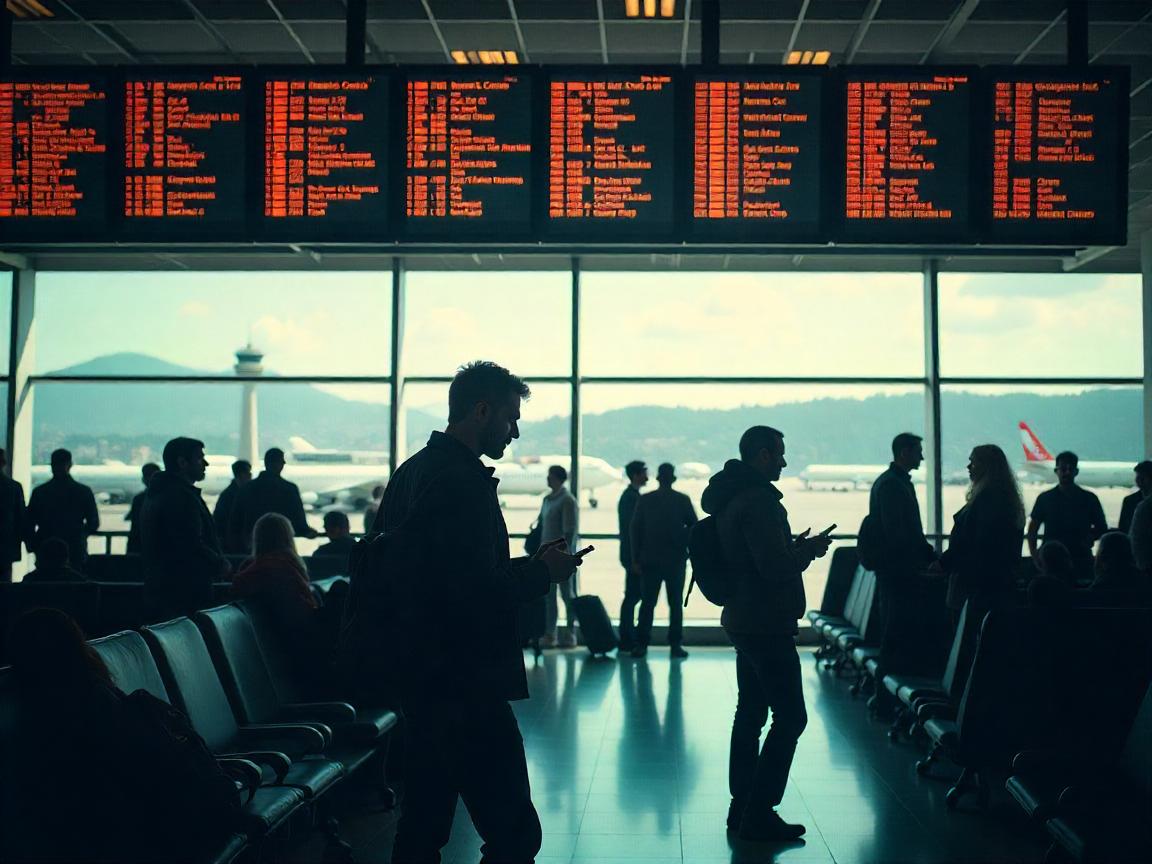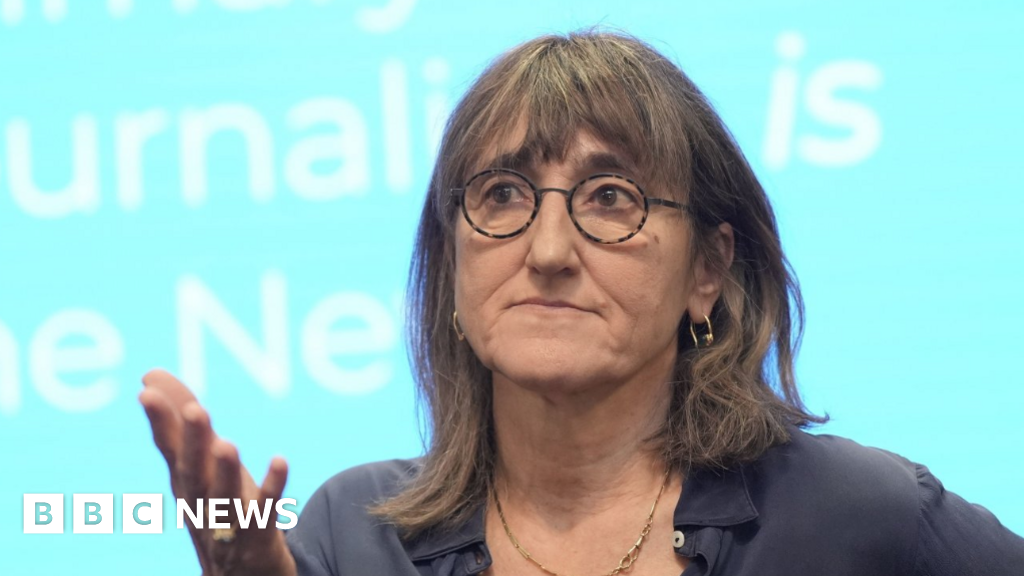South Africa: The High-Stakes Diplomatic Dance Between Ramaphosa and Trump - How Will It End? - allAfrica.com
Fisticuffs or a firm handshake?
South African President Cyril Ramaphosa and U.S. President Trump are scheduled to meet at the White House this week "to discuss bilateral, regional, and global issues of interest". The meeting comes as tensions between the two administrations grow, fueled by U.S. aid cuts and misinterpretations of South Africa's controversial land reform law, sparking the latest move by Trump and his South African-born advisor, and world's richest man Elon Musk - granting asylum to white Afrikaner farmers, whom they've described as "victims of genocide".
It is also the first time the new U.S. government will host an African leader at the White House since Trump took office in January 2025.
Tensions escalated since Trump's return to the White House in 2025, driven by his amplification of debunked "white genocide" narratives, and echoed by Musk. Trump said "terrible things are happening" in South Africa, alleging white Afrikaner farmers face persecution and violence.
Not long after he announced asylum for Afrikaners, and it's been a week since the U.S. welcomed more than 40 South Africans, who, according to U.S. Deputy Secretary of State Christopher Landau, had been "living under a shadow of violence and terror".
The South African government said that there is no evidence of persecution and that statements by Trump and others of "genocide" are unfounded. Many Afrikaner groups, such as AfriForum and Solidarity Movement, rejected Trump's offer, expressing their commitment to remain in South Africa.
"As South Africans, we are resilient. We don't run away from our problems. We must stay here and solve our problems. When you run away, you are a coward, and that's a real cowardly act," Ramaphosa said.
Musk further muddied the waters - his chatbot Grok, developed by his company xAI, is drawing criticism for repeatedly injecting false and racially charged claims about South Africa into unrelated conversations on X (formerly Twitter).
Users discovered that Grok responded to unrelated prompts on X by repeatedly bringing up the alleged theory of "white genocide" in South Africa, prompting confusion and criticism over its behaviour. The narrative was and continues to be widely disproven by the country's government and courts.
Grok's single-minded focus on South Africa came when Trump's administration started offering refugee status to its white farmers, alleging they are victims of racial persecution.
Some Grok users are wondering if Musk's AI is programmed with "specific" political bias.
Award-winning South African journalist Qaanitah Hunter wrote on X: "Woke up with real fear today. Grok malfunctioning to spew out misinformation about a fake white genocide in South Africa shows what we're in for. This is dangerous!" South African media personality and international consultant Redi Tlhabi wrote: "It proves beyond doubt that the disinformation campaign against South Africa was well-planned and coordinated. If their claims were true, they wouldn't need this level of manipulation. Right-wing racism is fighting with every tool available."
The thread that followed under Tlhabi's post sparked a polarized debate on the "white genocide" narrative in South Africa, sparked by Grok's misinformation, with some users like Jacques Prinsloo Breytenbach arguing it serves geopolitical agendas, while others like Free Induna dismiss it as exaggerated by "left wing nuts".
Trump's economic policies have severely impacted South Africa. His executive order in February stopped aid to South Africa, accusing the government of enabling policies that confiscate property unfairly and treat "certain classes of people very badly".
These funding cuts have critically disrupted life-saving HIV and AIDS programs. South Africa, with the largest HIV+ population globally, relied on the U.S. for roughly 18% of its HIV budget, amounting to $462 million in aid for 2023 alone. With some programs seeing funding restored while others remain suspended, organizations and patients face uncertainty, threatening to reverse years of progress in combating HIV/AIDS.
Trade relations are also at stake. In April, the U.S. imposed a 30% tariff on all South African goods, with an additional 25% tariff on South African-made vehicles, putting the total vehicle surcharge at 55%. Ramaphosa called these actions "punitive" and harmful to "fair trade and shared prosperity."
South Africa's African Growth and Opportunity Act (AGOA) status is coming up for review, adding economic pressure to the diplomatic tensions. It remains unclear whether Trump's administration will continue with the AGOA framework, which affects more than 30 African countries.
The Ramaphosa-Trump meeting will set the tone for U.S. engagement at the upcoming G20 Summit in Johannesburg. South Africa sees the Summit as an opportunity to shine as a leader for the Global South, but its success depends on the outcome of the Trump-Ramaphosa meeting.
Trump's decision to boycott the Johannesburg summit, as reported by The Mail & Guardian, alongside earlier snubs by Secretary of State Marco Rubio and Treasury Secretary Scott Bessent, point to a U.S. strategy, as U.S. National Security Council also ordered agencies to stop involvement in South Africa's G20 preparations after Trump and Secretary of State Marco Rubio's call to boycott the Summit over South Africa's land expropriation policies. However, Minister Ntshavheni said no official communication about the US withdrawal was received, and the South African government is only aware of the alleged ban via reports.
Rubio and Trump, however, both threatened to boycott the main event, referring to the "white genocide" against Afrikaners in South Africa and criticizing land expropriation laws. In February this year, Rubio snubbed G20 run-up events in Cape Town, prompting political analysts to say that if the U.S. does not attend the summit, it would elevate China's position, especially with the controversial decisions around U.S. tariffs and trade war threats. The U.S. is the only G20 member nation threatening to boycott the event.

Sign up for free AllAfrica Newsletters
Get the latest in African news delivered straight to your inbox
The South African government's stance on global issues, like its International Court of Justice case against Israel and its position on Ukraine, further complicates relations with the U.S.
The South African team of lawyers argued in front of the ICJ that Israel was committing genocide in Gaza, while the U.S. supplies Israel with weapons, and they are allies. South Africa's Ramaphosa also hosted Ukrainian President Volodymyr Zelenskyy at the Union Buildings in Pretoria, marking the first official visit by a Ukrainian Head of State to South Africa, while Trump's meeting with Zelenskyy ended on a sour note.
In April, the U.S. expelled Ebrahim Rasool, the South African ambassador to the US, over his criticism of Trump.
Adding to these tensions, Ramaphosa is president of the African National Congress, which won the country's first democratic elections in 1994, and was a historic ally of the Union of Soviet Socialist Republics (USSR) . The democratic South African government's relations with Russia grew after the USSR breakup, and they are now founding members of the growing BRICS alliance of economies, along with India, Brazil, and China.
Ramaphosa heads to the U.S. at the invitation of Trump, Minister Ntshavheni said, and the South African government is "confident that the invitation comes from a good place" with the intention to engage and clarify. However, the path ahead appears challenging as the two countries attempt to navigate contentious matters around land reform, trade, aid cuts, and global alliances.
Edited by Juanita Williams












